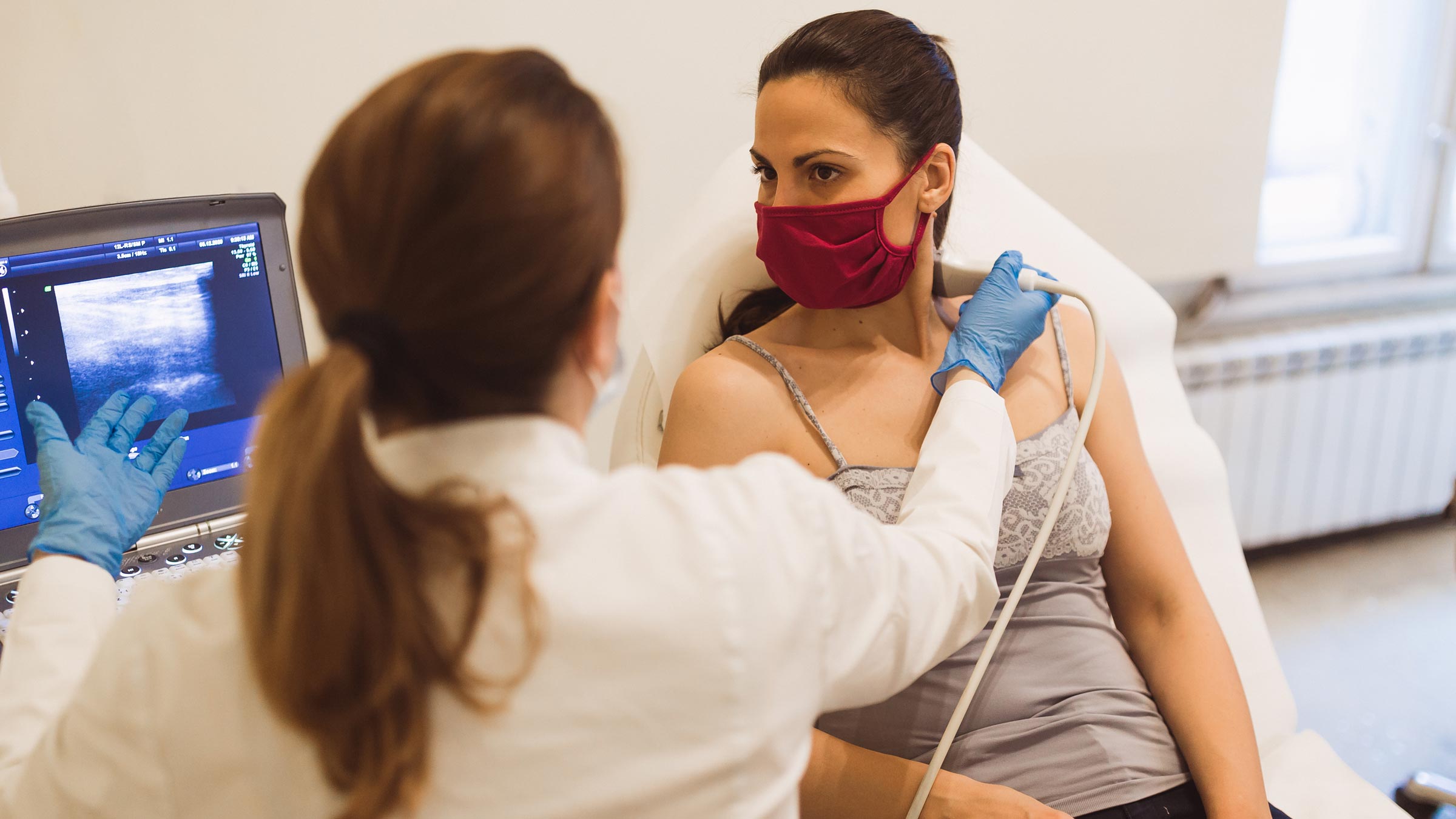
Editor’s note: As what we know about COVID-19 evolves, so could the information in this story. Find our most recent COVID-19 articles here and learn the latest in COVID-19 prevention at the Centers for Disease Control and Prevention. Some photos and videos on this site were filmed prior to the COVID-19 outbreak or may not reflect current physical distancing and/or masking guidelines.
OSUCCC – James experts are here to help patients and caregivers as they continue their cancer journeys amid the COVID-19 pandemic.
Today’s topic: How COVID-19 can affect cancer patients and their treatment plans
“The message that I want to share is that cancer patients are a unique population who are at higher risk for developing COVID-19 as well as at higher risk for complications from COVID-19,” says the OSUCCC – James Chief Medical Officer, David Cohn, MD. “This leads to the need for our cancer patients to do all that they can to minimize the risk of exposure to COVID-19. Our health care workers are partners in this effort to minimize the risk to our patients.”
Read on as Cohn explains the impact of the interplay between COVID-19 and cancer, and how patients and doctors can work together to reduce the chances of coronavirus infection.
COVID-19: The basics
“COVID-19 is a novel strain of coronavirus to which nobody has previous immunity. That’s why it’s causing the pandemic around the world. After exposure, it takes about 2-14 days to begin experiencing symptoms, which may include a fever of 100 degrees or more, a dry cough and shortness of breath. Many people infected with COVID-19, however, have no symptoms at all.
“Across the country, approximately one in five individuals who are infected with COVID-19 may ultimately require evaluation in a hospital setting, while around seven percent require intensive care because they become critically ill. The death rate is estimated to be anywhere from less than one percent to three percent. These numbers are quite variable because there has not been universal testing of the population at large.”
How COVID-19 affects cancer patients
“Cancer is a disease that affects the immune system — we call it immunosuppressive, which means that it causes people to be more susceptible to some infections, including viral types like COVID-19. Cancer treatment, in and of itself, can also decrease the immune system’s capacity to fight off infection. So, patients who have cancer and those undergoing chemotherapy or radiation have immune systems that have a decreased ability to fight off viruses quite as effectively. That’s why this intersection between COVID-19 and cancer patients is so critically important to understand.”
Continuing treatment during the pandemic
“It’s vital that people who are undergoing cancer treatment in the era of COVID-19 have conversations with their oncologists. In general, cancer treatments that were ongoing before the emergence of COVID-19 are still underway during the pandemic. The U.S. Surgeon General has recommended that many elective surgeries be canceled, but very often, cancer surgeries are not elective.
“Likewise, chemotherapy treatments that are necessary to improve patients’ chances of survival or their quality of life are in general continuing. Radiation therapies that are ongoing will also continue during the COVID-19 pandemic. Oncologists should be able to give patients individualized treatment recommendations.”
Virtual visits
“There’s now a lot of emphasis on figuring out which type of visits we can do virtually via telephone or videoconference. A goal of cancer patients is to maximally control their environments, which gets back to the things we can do, individually, to protect our communities from the spread of coronavirus, and to put us in a position to increase our chances of avoiding COVID-19.
“Everything that’s been discussed by the CDC — hand-washing, hand sanitizer usage, social and physical distancing — these are all things we can do to control our environments. Likewise, if you’re a cancer patient, you might find that your care team is going to help you control your environment by decreasing your requirement to enter clinics for a follow-up visit, or by recommending that, rather than go in for an examination before chemotherapy, you might have that exam during infusion.”
Focusing on wellness
“Cancer is a condition that’s very challenging emotionally as well as physically. A lot of patients express feelings of social and physical isolation because their immune systems might prevent them from interacting with others.
“Cancer patients should remember to focus on wellness and mindfulness during the COVID-19 pandemic. Keeping safe social connections whenever they can is critically important — hanging out when they can on video chats and phone calls with friends and family is a key to success in getting through this.”

Get comprehensive information on COVID-19 and cancer
Get important information and tips on nutrition, exercise and risk reduction — from OSUCCC – James experts.
Get information now



